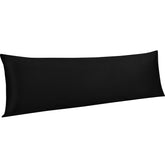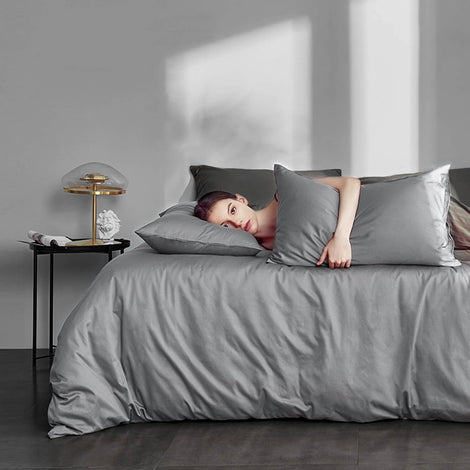Sleep Tips for Older Adults
Older Americans often have sleep problems at night. Experts point out that this largely affects quality of life because, contrary to common belief, older adults actually need as much sleep as younger people.
Dr. Harrison G. Bloom says, "Difficulty falling asleep and irregular sleep are not inherent to aging, and it is absurd to think that older adults need less sleep than younger adults." Dr. Harrison G. Bloom is a senior consultant to the International Longevity Center in the United States and a clinical associate professor of geriatrics and medicine at Mount Sinai School of Medicine in New York.
A recent study published in the American Journal of Medicine found that more than half of older Americans suffer from sleep deprivation. Older adults tend to have 'broken' sleep schedules, and they wake up more frequently during the night.
Older adults appear to have less 'rapid eye movement' sleep, a state of rapid eye movement sleep." It is not clear how these naturally occurring changes in sleep characteristics affect quality of life. Importantly, older adults often have sleep disturbances and difficulty falling asleep
Experts say that "the causes of this condition are often multifaceted." Sleep disturbances in older adults are particularly associated with a variety of acute or chronic conditions, including some sleep disorders such as sleep apnea syndrome and restless legs, which are common in the older population,These can reduce sleep quality, so what older adults perceive as sleep disturbances are actually caused by other conditions." Many older adults take multiple medications, which can lead to fatigue and drowsiness. Another big problem is depression and anxiety, which can also be a trigger for sleep problems.
Despite the prevalence of sleep difficulties among the older population, many patients are not getting help with what seniors can do to improve their sleep quality
1 Provide a comfortable sleep environment
The function of the lumbar spine in the elderly degenerates with age, even to the point of lumbar muscle strain, lumbar disc herniation, and lumbar leg pain. And sleep with a certain hardness of the bed, to provide proper support for the spine, can eliminate the weight and weight on the pressure of the intervertebral discs, conducive to the relief of symptoms of lumbar pain.
In addition the microfiber soft sheet and duvet cover of the bed are clean and tidy, the room is quiet, moderate light is also very important. The sleeping environment of the elderly should be as quiet and fresh as possible, bed sheets are recommended to be cleaned in one state, well ventilated, minimize light interference, and pull the curtains when napping.
Develop good sleep habits
First, choose a scientific sleep position
Older people should pay attention to sleeping posture, which is not only related to the quality of sleep, but also has a certain impact on health. It is recommended that the elderly should preferably adopt the posture of "lying like a bow". This is a more relaxed sleeping posture, which is conducive to relaxing the body's muscular tissues, eliminating fatigue and helping the stomach to push food in the direction of the duodenum. It also facilitates the return of blood to the heart and reduces the burden on the heart.
Second, regular rest and rest
Rest at the right time and work and rest regularly. You can determine whether your sleep time is enough or not by having a good mental state the next day.
Develop good habits
Avoid eating too much for dinner, do not drink coffee, alcohol or large amounts of water before bedtime, and remind the elderly to use the toilet before going to sleep to avoid increased nighttime urination and sleep disturbance. Avoid using medications to help you fall asleep.
Editor’s Picks
Ultra Soft Satin Body Pillowcase – Smooth & Cozy with Envelope Closure|NTBAY ®️
- $13.99
$23.99- $13.99
- Unit price
- / per
- $13.99
$23.99- $13.99
- Unit price
- / per
-
Black
-
White
-
Ivory
-
Pink
- RedNavy BlueYellowKhakiPurpleBrownDark GreenLight GrayAqua BlueCharcoal GrayDark GrayLight PurpleSlate Blue
Cotton Body Pillowcase with Envelope Closure|NTBAY®️ - Black
- $25.99
$29.99- $25.99
- Unit price
- / per
- $25.99
$29.99- $25.99
- Unit price
- / per
-
Black
-
White
-
Ivory
-
Pink
- RedNavy BlueYellowKhakiPurpleBrownDark GreenLight GrayAqua BlueCharcoal GrayDark GrayLight PurpleSlate Blue
-
White
-
Red
-
Navy Blue
-
Light Gray
- Dark GrayBlackDark GreenPinkYellowAqua Blue
2 Pack Soft Cotton Pillow Shams|NTBAY®️ - White
- From $26.99
$29.99- From $26.99
- Unit price
- / per
- From $26.99
$29.99- From $26.99
- Unit price
- / per
-
White
-
Red
-
Navy Blue
-
Light Gray
- Dark GrayBlackDark GreenPinkYellowAqua Blue
-
Pink
-
Silver
-
Wine Red
-
Dark Green
- YellowGrayGolden BrownRoyal BlueNavy BluePurpleOrangeBlackWhiteSea Green
3/4 Pieces Silky Satin Twin Cooling Soft Bed Sheet Set|NTBAY®️ - Pink
- From $40.99
$40.99- From $40.99
- Unit price
- / per
- From $40.99
$40.99- From $40.99
- Unit price
- / per
-
Pink
-
Silver
-
Wine Red
-
Dark Green
- YellowGrayGolden BrownRoyal BlueNavy BluePurpleOrangeBlackWhiteSea Green
-
Purple
-
White
-
Royal Blue
-
Aqua Blue
- PinkBlackRedYellowOrangeBrownKhakiSage GreenLight GrayDark BrownTan OrangeDark GraySky BlueSmoke GrayNavy BlueMagentaWine RedIvorySea GreenCoral PinkBurnt OrangeSlate BlueBlush PinkOlive GreenDark GreenGinger YellowLight Purple
100% Microfiber Body Pillowcase with Envelope Closure|NTBAY®️ - Purple
- $15.99
$22.99- $15.99
- Unit price
- / per
- $15.99
$22.99- $15.99
- Unit price
- / per
-
Purple
-
White
-
Royal Blue
-
Aqua Blue
- PinkBlackRedYellowOrangeBrownKhakiSage GreenLight GrayDark BrownTan OrangeDark GraySky BlueSmoke GrayNavy BlueMagentaWine RedIvorySea GreenCoral PinkBurnt OrangeSlate BlueBlush PinkOlive GreenDark GreenGinger YellowLight Purple
















